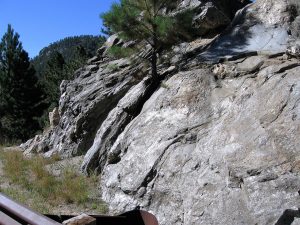 Psalm 10:12-18
Psalm 10:12-18
David began the twin psalms (nine and ten) with praise as he thought about God’s rule over a broken world. We have seen that in psalm ten, he focused more on human hardships in a broken world than on God’s rule. The Spirit led David to sing about both aspects of reality. This perspective is beneficial for us to have. It makes our worship times real. We do not have to suppose that all of life is beautiful and happy in order to worship the Lord God. This realism guides us to pray.
When we read today’s text, it is important to remember the covenant under which David lived and worshiped. He lived under the law or old covenant. It was a ministry of death and condemnation (2 Corinthians 3:6-9). The law, though graciously given to provide Israel with access to the true God, did not and could not provide grace for the disobedient. So then, as David wrote about the wicked and the evil that they brought on others, he prayed for God to exercise justice on the wicked (10:15). We do not live under the law covenant, but we are in Christ. We have a better covenant and a mission that includes prayer for the salvation of the wicked. With that in mind, let’s consider the other requests that David presents to the Lord.
- David prayed for God’s involvement. Arise, O Lord; O God, lift up your hand; forget not the afflicted (10:12; ESV for each verse quoted). This is bold language to use the Holy God, but he understood that he could talk to the Lord of all in a personal manner. David wanted God to act in power (lift up your hand) and compassion (forget not the afflicted).
- David expressed his frustration about the attitude of the wicked. Why does the wicked renounce God and say in his heart, “You will not call to account”? (10:13) Since David knew the glory of the majestic God, he questioned the way the wicked thought and behaved. We, too, see the heartlessness, cruelty, and malice in the world, and we can express surprise about the cockiness of the enemies of God and his people. One of their ruling motives is their lack of sense regarding eternity and the judgment to come. They refuse to consider it; they do not wish to think on it. This means that we ought to pray, because they will not.
- David confessed God’s great attributes. But you do see, for you note mischief and vexation, that you may take it into your hands; to you the helpless commits himself; you have been the helper of the fatherless (10:14). He knew that God was not far off, though he has said that earlier (10:1). The Lord God did see with purpose. He was not a mere spectator, but watching for the time and place to act. He knew that his God was worthy of his trust and the faith of those in need. We ought always to strive to confess how God’s character and abilities apply to the situations for which we are praying.
- David worshiped the Lord for his coming victory. The Lord is king forever and ever; the nations perish from his land (10:16). Although David saw the present distress, he remembered that a better day was coming. The truth that the Lord rules over all had not changed, even when God seemed to stand far away. God would act for his people against the nations invading their land. In the old covenant, the people and their land were closely connected. For this reason, this is an important expression of faith by the psalmist.
- David reassured himself and those who listen to his song. O Lord, you hear the desire of the afflicted; you will strengthen their heart; you will incline your ear to do justice to the fatherless and the oppressed, so that man who is of the earth may strike terror no more (10:17-18). He concluded his prayer in a hope-filled manner. God would act for the good of his afflicted people. Strength does rise “as we wait upon the Lord”!
One day the terror will end, the afflicted will be rescued, the fatherless will find eternal rest in the Father’s house. Until then, we must pray. “Lord, protect your people whom you love from those who act wickedly and who cause terror in this broken world.”
Grace and peace, David
